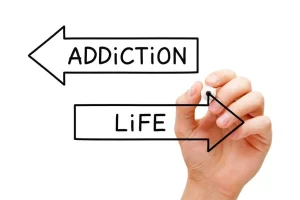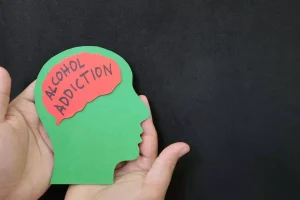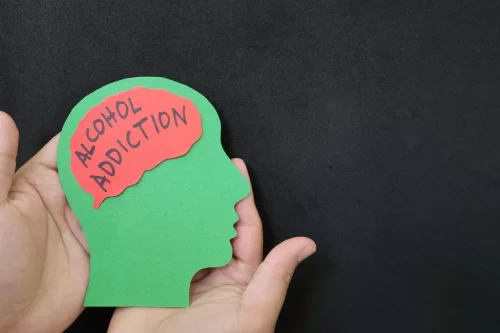
When faced with perceived slights, narcissists can display intense anger or narcissistic rage. This may involve verbal attacks, physical aggression, or prolonged silent treatment. Narcissistic partners often employ projection, accusing others of behaviors they exhibit themselves. Guilt-tripping and emotional blackmail are common manipulation strategies. They might threaten self-harm or abandonment to control their partner’s actions. Gaslighting is a manipulation tactic used by narcissistic partners to make others doubt their perceptions.
Need for Control
- Narcissistic individuals may use manipulation to maintain their self-image, while those with AUD may manipulate to hide or justify their drinking.
- As with all personality disorders, NPD is a long-standing condition.
- Alcohol numbs the narcissist’s feelings and makes them more vulnerable to forgetting their insecurities, issues with self and people, and constant urge to fit in the world.
- In both NPD and AUD, childhood trauma — including abuse and neglect — may be a risk factor.
- In some cases, they want to show off by drinking as much as possible.
- Alcoholism and narcissism are commonly linked with each other; but why?
Narcissistic personality disorder (NPD) is one of the Cluster B personality disorders, which are characterized by unpredictable and emotional behavior. Personality disorders are grouped into clusters based on similar traits. If you know someone who regularly uses alcohol, it’s possible that narcissism might be one of the influencing factors. Research supports the link between some narcissistic traits and alcohol use.

What to know about narcissism and alcoholism

Thus revealing their true intentions and self becomes their inhibition. But they believe that if they drink, they can unleash more of their narcissistic side to people as people are more accepting when someone is drunk. So when they drink they may be more relaxed and less stressed about unveiling their nasty side to people. Narcissists may act to be more drunk as they wish to unleash the concealed level of narcissism that shouts toxicity. They may appear as someone drunk just to take advantage of the situation and abuse others.
Comorbid Mental Health Conditions
They may drink excessively to avoid taking accountability for their behavior as they believe their drunk behavior may not be counted. Even if their drunk behavior brings misery to other people, they may hardly care because narcissists do not empathize with others. They may never fully understand how they may impact others and how their behavior can cost other people their happiness and peace of mind. Sometimes they are at their worst behavior and sometimes they may be at their best behavior when they drink. When they are around people who may seem to give them a superiority complex, they act nasty. But with people whom they wish to impress, they may be on their best behavior.
Alternatively, having a narcissistic personality disorder can make a person more susceptible to the abuse of alcohol. An alcoholic narcissist has an excessively grand view of themself, or they’re using alcohol to help cope with an underlying shame. A trained mental health professional is usually able to diagnose personality disorders using standardized psychiatric interview methods. Gaining knowledge about narcissism and alcoholism can provide you with valuable insights into the behaviors and traits of the individual you are dealing with. Understanding the underlying issues can help you approach situations with greater empathy and awareness.
These centers specialize in treating both mental health disorders and substance abuse simultaneously, offering integrated https://ecosoberhouse.com/ and personalized treatment plans for effective recovery. So, understanding this relationship is necessary for addressing both conditions effectively. Mental health disorders and substance misuse often intersect, creating complex challenges for those affected. Alcohol use disorder (AUD) is prevalent, impacting millions worldwide, and often coexists with other psychological conditions.


They might react defensively or dismissively when their behavior is questioned. If the narcissist poses an immediate threat to themselves, do not hesitate to contact emergency services or a suicide prevention hotline for immediate assistance. If possible, remove access to potentially harmful items such what is Oxford House as medications, firearms, or sharp objects.
- This is done by helping the individual recognize how their faulty thinking patterns affect their behaviors.
- In a nutshell, grandiose narcissists may feel proud of their excessive alcohol use, and the problems it can cause, if it makes them stand out.
- Also, people with AUD might seem to behave similarly to people with narcissistic traits.
- Narcissistic abuse can lead to significant changes in personality, often resulting in traits such as low self-esteem, anxiety, and confusion.
Health Products
Co-occurring disorders are substance use disorders and mental disorders that exist at the same time. A narcissistic alcoholic is someone who either possesses narcissistic traits due to their alcoholism or is someone who has NPD and drinks alcohol because of their disorder. Long-term studies are needed to assess treatment outcomes and identify factors that promote sustained recovery. Advancing our understanding of these complex, intertwined conditions can lead to more effective interventions and improved quality of life for affected individuals.
- Vulnerable narcissists may internalize their feelings of superiority, while grandiose narcissists externalize them more openly.
- They are extremely self-interested and often don’t think of other people’s feelings and emotions.
- Narcissistic individuals often struggle with low self-esteem despite their outward confidence.
- It seems that many people who have NPD might also have AUD, but it’s not clear why.
- People who are at the highest end of the spectrum are the people who are classified as NPD.
It can manifest in how does alcohol affect a narcissist various forms, from healthy levels of self-confidence to pathological narcissism. Narcissism is a personality disorder that may cause individuals to display grandiose and self-involved behaviors. Alcoholism is an addiction where people cannot control their alcohol use.
With treatment, those with NPD can live healthy lives with positive relationships. When people have a mental health condition that co-occurs with a substance misuse disorder, such as AUD, doctors may refer to this as dual diagnosis. According to the National Institute of Mental Health, 22.6% of people with a personality disorder may also have a substance misuse disorder.
